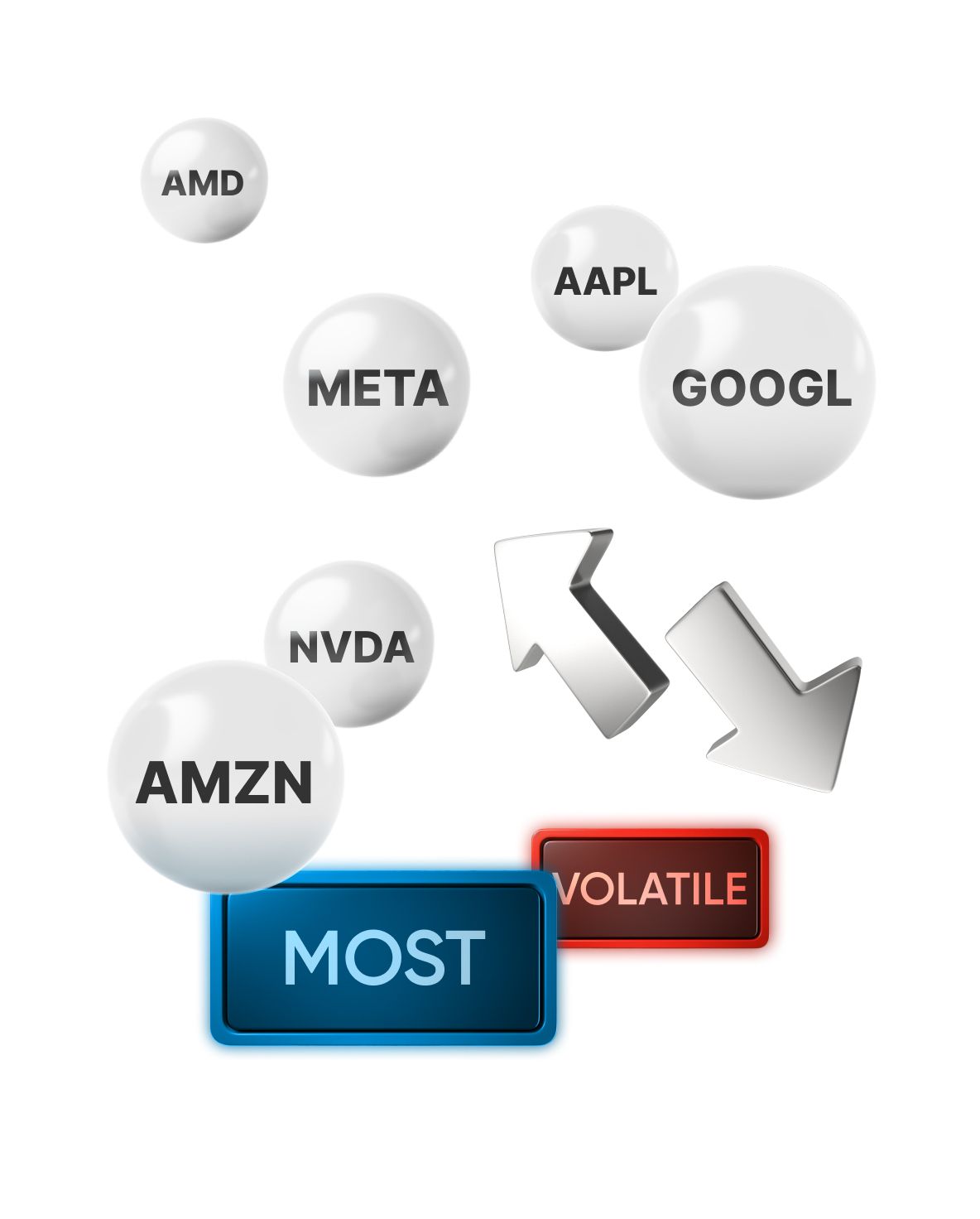Discover today’s most volatile shares – and create a demo account to practise trading CFDs on high volatility shares with zero risk to your capital.

A stock can become volatile due to a range of factors that influence its price movements. These can include:
Stock volatility can also spike due to trading activity itself, such as high trading volumes or speculative trading. Essentially, any news or event that could potentially change traders’ perceptions of the stock’s future value could cause volatility.
If you’re looking to trade volatile stocks, remember, a volatile stock is not inherently bad, but it does present a different risk profile.
Volatility means that a stock’s price can fluctuate dramatically in a short period of time in either direction. Although this can lead to higher potential returns, it also comes with increased risk and the potential for higher losses.
Ultimately, whether a volatile stock is good or bad depends on a trader’s risk tolerance, strategy, and financial goals.